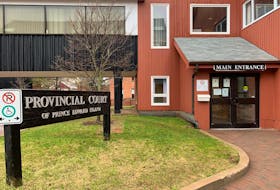CHARLOTTETOWN, P.E.I. — Long-awaited changes to P.E.I.’s tenancy legislation will not be brought to the legislature before the fall, a full year and a half later than originally planned.
Last February, the provincial government announced plans to overhaul the Rental of Residential Properties Act, legislation that governs the relationship between renters and landlords in P.E.I. A draft of the new legislation was originally released publicly, but some consultation events planned last March were cancelled after the onset of the COVID-19 pandemic.
The new legislation would be the first significant update to the legislation in 30 years.
Prior to the pandemic, the new law was expected to come before the legislature last spring.
In the midst of a record shortage of rental units, housing advocates in P.E.I. have said current tenancy legislation has not provided adequate protection to renters. Tenants have reported a rise in what are being called “renovictions”, involving the eviction of tenants under the guise of renovations, in order to allow the landlord to raise rents.
An email from the Department of Education and Lifelong Learning said the consultation process for the new tenancy law was extended from last March to August. Close to 160 submissions from landlords and tenants will be incorporated into a new draft of the legislation.
“Once the amendments are complete, we will provide another opportunity for consultation on the new draft before the act comes to the legislature,” read an email from the Department of Education and Lifelong Learning.
Liberal MLA Heath MacDonald said the issue of tenancy reform has polarized tenants and landlords. He believes the new round of consultations has been announced because of lobbying by landlords.
"Let's call a spade a spade – I think it was the developers and the landlords who said they didn't have input. If they now have input, then everybody needs to be able to see that," MacDonald said.
"Let's stop dragging our feet. Let's get to it."
Opposition Green MLA Hannah Bell said the housing shortage in P.E.I. has exposed how little recourse tenants often have related to illegal behaviour by landlords. Current tenancy laws are often not enforced.
Bell said the delays indicate tenancy reforms are not a priority for Education Minister Brad Trivers.
“It’s so far off the edge of his desk it’s in the next room,” she said.

The first draft of the new law, the Residential Tenancy Act, would allow tenants who are evicted by landlords for renovations to have a “right of first refusal”, an option to move back into a unit after work is done.
The draft also set out a maximum limit of 2.5 per cent yearly increases to rent, but landlords would be able to apply to the Island Regulatory and Appeals Commission to increase rent beyond this amount. The draft bill set out a number of factors IRAC would have to consider before granting these increases, including the rent history of the unit in the previous three years or a “relevant submission from an affected tenant.”
Bill and Kathy McInnis of the Residential Rental Association of P.E.I. (RRAP) believe the new legislation is unfairly slanted against landlords. In addition, they believe landlords have not been adequately consulted on the changes
The two also said that landlords, who are members of their association, have objected to parts of almost every page of the draft legislation.
"When you have to change the legislation that much, it needs to be scrapped, simple as that," Bill said.
"Our industry is going to suffer if this thing is shoved through."

A draft submission made on behalf of the RRAP argued landlords should be able to raise rents above 2.5 per cent per year and said the new legislation does not require IRAC to consider “fair market value” of rental units.
The RRAP also suggested that allowing tenants to be given the “right of first refusal” could force landlords to re-rent to drug dealers or tenants who pose a threat to the safety of others.
Connor Kelly, a tenant network co-ordinator with P.E.I. Fight for Affordable Housing, said rents have been increasing in throughout P.E.I. beyond what many renters can afford.
“Shelter is a bit more of a priority than how much profit somebody is making," Kelly said.
A consultation submission from P.E.I. Fight for Affordable Housing applauded the right of first refusal principle but also called for an explicit prohibition of evictions for the purpose of converting a unit from long-term tenancy to short-term rental.
Ainsley Kendrick, another member of P.E.I. Fight for Affordable Housing, said it is a “common story” for landlords in Charlottetown to raise rents above the currently allowable limit of one per cent after a renoviction.
She said she was generally happy with the proposed Residential Tenancy Act.
“We can’t really shake our finger at them and say you didn't do it fast enough because nothing happens fast on P.E.I," Kendrick said.
"The thing is though, they can set a fall date, but will they hold (to) it?”
The Guardian attempted to speak with Education Minister Brad Trivers, who is responsible for IRAC, but was told he was not available.
Stu Neatby is the political reporter for The Guardian.









